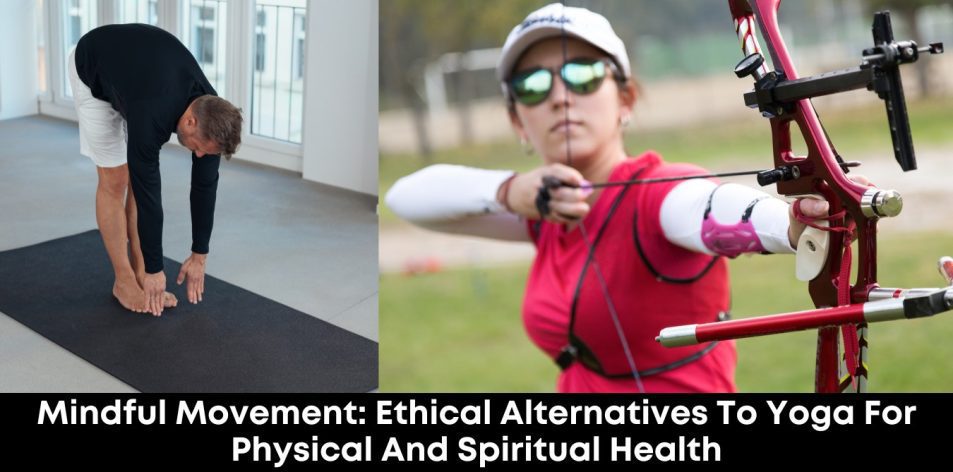Navigating Fitness Choices with Principle and Intention
Seeking physical fitness and mental well-being is a desirable pursuit in a balanced life, and there is clear encouragement to maintain a strong body and mind. The practice of yoga, while recognized globally for its physical stretching and relaxation benefits, has been the subject of careful examination by many scholars due to its deep historical roots in non-Islamic spiritual philosophies. This article explores the primary concerns raised regarding traditional yoga and, more importantly, offers several ethically compliant and holistic alternatives for achieving fitness and inner peace.
The Ethical Considerations Regarding Traditional Yoga
The concerns raised by scholars often revolve around the practice of yoga when it is linked to its classical, spiritual origins:
- Philosophical Origins: The word “Yoga” itself is derived from Sanskrit and means “union” (with the universal spirit or deity). Traditionally, it is a spiritual discipline forming part of other religious philosophies, aimed at attaining specific spiritual goals.
- Incorporation of Rituals: Many traditional and some modern yoga classes involve chanting, specific mantras (words of prayer or devotion to deities), and certain ritualistic postures (like the ‘Sun Salutation,’ which historically involves veneration). The incorporation of these elements can lead to the unintended imitation of other religious practices.
- Intention and Imitation: A core ethical principle is that a person’s faith should not be compromised. The concern is that engaging in practices deeply rooted in other faiths, even if the intention is purely physical, may blur lines or potentially compromise one’s commitment to the Oneness of the Almighty.
Conclusion of the Matter: While many agree that purely physical stretching and breathing exercises are permissible, the complexity of separating the movements from their original spiritual meaning leads many to recommend finding clear alternatives to maintain a clear conscience and strong faith.
Ethically Compliant Alternatives for Holistic Fitness
There are numerous ways to achieve the same physical and mental benefits of flexibility, core strength, and relaxation without engaging in practices that raise ethical questions.
1. Prayer (Salāh): The Ultimate Holistic Exercise
The five daily prayers offer a built-in, divinely prescribed routine of mindful movement and devotion.
- Physical Benefits: The movements—standing, bowing (Rukūʿ), prostration (Sujūd), and sitting—provide gentle, full-body stretches that promote joint flexibility, improve circulation (especially to the brain during Sujūd), and enhance posture.
- Mental Benefits: The practice requires concentration, serving as a powerful form of mindful meditation that reduces stress and anxiety, fostering deep inner peace (Ṭuma’nīnah).
2. Dynamic Stretching and Calisthenics
You can create your own stretching routine focused purely on physical health, using movements from known fitness practices that carry no external religious connotation.
- Activities: Incorporate deep lunges, leg raises, seated twists, arm circles, and bodyweight exercises (like squats and push-ups) to build strength, flexibility, and core stability.
- Focus: Concentrate your intention solely on physical well-being and strengthening the body for service and healthy living.
3. Prophetic Sports and Activities
The Sunnah (practices of the Prophet PBUH) encourages several physical activities that are excellent for fitness and community bonding.
- Activities: Brisk walking, running, swimming (in appropriate settings that maintain modesty), and archery. These are excellent for cardiovascular health, endurance, and skill development.
4. Mindfulness and Remembrance (Dhikr)
For mental calm and relaxation, focus on the remembrance of the Almighty, which is the ultimate source of tranquillity
- Practice: Engage in structured reflection (Muraqabah) or repetitive Dhikr (remembrance of Allah) to calm the mind and reduce mental stress. This practice is a pure and effective form of meditation.
By consciously choosing activities that are clear of any conflicting spiritual elements, you fully commit to a lifestyle that promotes both physical vigour and deep inner peace, ensuring that your pursuit of health is a holistic act of devotion.

